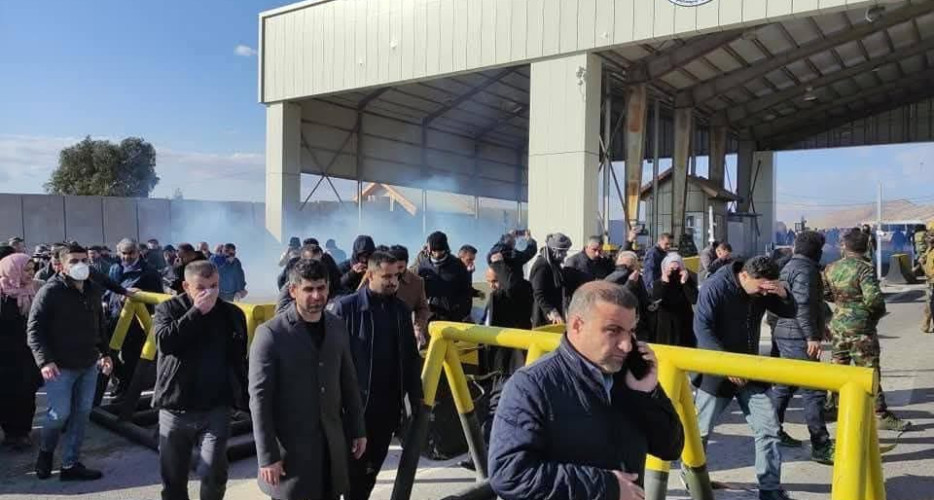KRG Ministry of Interior: Foreign, Domestic, and PKK Parties Exploiting Employee Protests to Disrupt Security

Peregraf
The Ministry of Interior of the Kurdistan Regional Government (KRG) has issued a statement regarding the ongoing strike and demonstrations by teachers and public employees in Sulaymaniyah and Degalla Checkpoint, claiming that "foreign and domestic parties and the PKK are taking advantage of the protests to disrupt security in other parts of the region, thereby overshadowing the legitimate demands of employees."
According to the ministry, employees have been gathering in Sulaymaniyah for several days to demand their rights. "The legitimate demands of KRG employees and various societal sectors have always been a priority on the government's agenda," the statement read. "We are actively working to resolve the outstanding issues in coordination with Baghdad."
However, the ministry warned that "some foreign and domestic entities in Iraq, as well as outlawed groups like the PKK, are seeking to manipulate these protests for their own suspicious purposes." It further emphasized that while the right to demonstrate is respected, "any attempt to destabilize the Kurdistan Region's security will be prevented, and any action outside the legal framework will not be tolerated."
Security Crackdown on Protests
The protests have now entered their 13th consecutive day, continuing despite severe weather conditions. Some demonstrators have reportedly refused medical treatment as an act of defiance against what they perceive as government inaction.
Meanwhile, security forces affiliated with the Kurdistan Democratic Party (KDP) have been preventing teachers from entering Erbil. At the Degalla checkpoint, KDP forces used tear gas and water cannons to disperse teachers and employees attempting to enter the city. The move is part of heavy security deployments aimed at deterring public sector workers from staging protests in the Kurdish capital over the ongoing salary crisis and the KRG’s failure to implement the Iraqi government’s salary domiciliation initiative, known as "Tawteen."
Protesters Seek International Attention
In response to the financial turmoil, educators and public employees from Sulaymaniyah and other cities have intensified their demonstrations, attempting to bring their protests to Erbil. Many demonstrators, primarily from areas governed by the Patriotic Union of Kurdistan (PUK), used buses to reach the United Nations headquarters in Erbil in an effort to draw international attention to their plight.
Erbil Governor’s Controversial Remarks
Omed Khoshnaw, the governor of Erbil and a senior KDP member, addressed the situation in a press conference, stating: "Erbil is known for its hospitality and welcomes its visitors. However, those who arrive under the banner of KRG employees and are, in reality, Arabs—while the Arab authorities in Baghdad are responsible for budget cuts—will not find a welcoming environment in Erbil today."
Khoshnaw’s remarks reinforced the KRG’s stance of attributing the salary crisis to the federal government in Baghdad. He further emphasized that Erbil "cannot stand to receive such unwanted guests today" and insisted that the ongoing financial hardship is a direct result of Baghdad’s policies rather than KRG mismanagement.
Growing Public Anger
The prolonged salary crisis has left thousands of teachers and public employees without pay for months, leading to mounting frustration and anger across the Kurdistan Region. While the KRG maintains its stance, public outrage continues to escalate, raising concerns about whether the government will address employees' demands or if tensions will further intensify in the coming days.